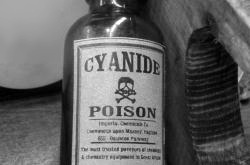 The Faustian nature of the coalition pact is now plain for all to see. In the run up to, and now at their Spring Conference, the Lib Dem grandees have been forced into an ignominious cul-de-sac of bombast. The crowing and gloating fools no one except those who crow and gloat. The empty rhetoric of influences exerted and battles won sounds ever more like a catastrophe of paperclips rearranged, files shuffled and deck-chairs shifted this way and that. Baroness Bloomers has emerged from the parliamentary salon sporting a new blue rinse, her blustering opposition seen to have all the substance of a wet paper bag. She may say that the amendments she has brought about are substantial and significant, but even a cursory examination shows them to be insubstantial and insignificant: the central thrusts of the bill remain unchanged. Professor Pollock, the thinking doctor’s crumpet, provides an excellent of just how little real change Baroness Bloomers – definitely not the thinking doctor’s crumpet – has achieved here.
The Faustian nature of the coalition pact is now plain for all to see. In the run up to, and now at their Spring Conference, the Lib Dem grandees have been forced into an ignominious cul-de-sac of bombast. The crowing and gloating fools no one except those who crow and gloat. The empty rhetoric of influences exerted and battles won sounds ever more like a catastrophe of paperclips rearranged, files shuffled and deck-chairs shifted this way and that. Baroness Bloomers has emerged from the parliamentary salon sporting a new blue rinse, her blustering opposition seen to have all the substance of a wet paper bag. She may say that the amendments she has brought about are substantial and significant, but even a cursory examination shows them to be insubstantial and insignificant: the central thrusts of the bill remain unchanged. Professor Pollock, the thinking doctor’s crumpet, provides an excellent of just how little real change Baroness Bloomers – definitely not the thinking doctor’s crumpet – has achieved here.
Were we to compile a Desert Island Disc list of Britain’s greatest achievements over the last several decades, Dr No has no doubt the NHS would be in that list, and he further believes that for many, the NHS is the achievement they would choose if asked to pick only one. The provision of universal and comprehensive health care to all, free at the point of delivery, based not on ability to pay but on clinical need, is a truly crowning achievement for a civilised society. Notwithstanding its faults, which it has being not a religion, it is nonetheless, as has often been observed, the closest thing we have to a national religion. For many, it is, at times quite literally, the glue that holds them, their families and the country together.
Remarkably, for such a monolithic institution, the NHS has evolved and developed over the years. Being both massive and monolithic, it does not change rapidly, but change it does. Today’s NHS is very different to the NHS Dr No trained in thirty years ago, and that NHS is very different to the NHS that brought Dr No into the world almost a quarter of a century earlier. It doesn’t need a reorganisation ‘so big it can be seen from space’ to change; instead, like a great African elephant, it will slowly but surely get where it needs to go.
The bill still retains decentralised market forces at its core. It will poach the ivory, and then decapitate and quarter the elephant, and then expect each leg to make its own way in the world. Like the destruction of an elephant, such barbarism will be terrible to behold. And yet that is what the bill will bring about.
Any political party discovered to have the blood of such brutality on its hands will become unelectable, not just at the next election, but for a generation to come. The political wilderness will last, because the people, like the elephant, will remember; nor will they forgive. It will only be when the veterans of the destruction have themselves died away that a new generation, lacking that memory, may – only may – be prepared to allow the destroyers a new chance
The bill is beyond doubt electoral suicide. Lib Dem Grandees, rendered incapable on the heady intoxicant of false power, cannot see the danger. Rank and file Lib Dems, if they wish to survive as a political force, must wake up and, unlike their deluded leaders, be sensible to the danger. They must wake up and smell the cyanide in the air, and, having done so, take steps to escape its poisonous draught. They must vote to scrap the bill.
